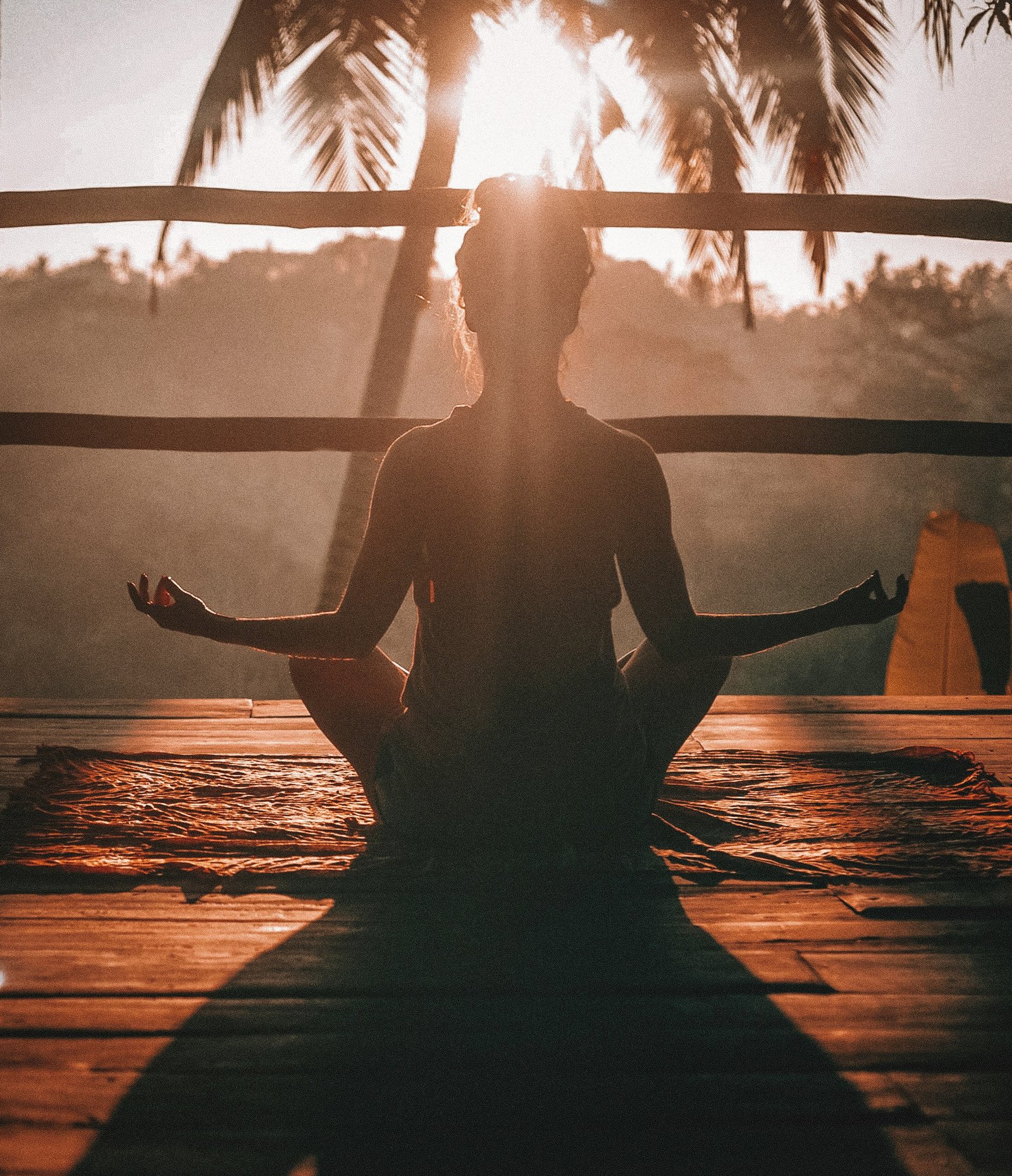Yin Yoga, a practice centered on stillness and deep stretching, is a meditative approach that targets the body’s connective tissues. Unlike more vigorous yoga styles, Yin Yoga focuses on long-held poses, encouraging a gentle yet profound exploration of the body’s inner landscapes. Whether you’re a seasoned practitioner or new to yoga, a Yin Yoga training course offers an opportunity to deepen your practice and enhance your teaching skills. This article delves into the essence of Yin Yoga, its postures, and the journey to becoming a Yin Yoga instructor.
What is Yin Yoga?
Yin Yoga, sometimes spelled yinyoga, is a calming practice that emphasizes slow, deliberate movements and extended holds in various poses. This style is designed to stretch and strengthen the connective tissues—such as the fascia, ligaments, and joints—providing a counterbalance to more dynamic, yang-oriented practices. Yin Yoga is rooted in Taoist principles, focusing on balancing the body’s yin (passive) and yang (active) energies. This balance promotes physical flexibility and emotional well-being, making Yin Yoga a holistic practice for the mind and body.
Understanding Yin Yoga Postures
The hallmark of Yin Yoga is its long-held postures, which can last from three to five minutes or longer. These poses are typically performed on the floor and require little muscular engagement, allowing gravity to do most of the work. The focus is on relaxing the muscles and gently stressing the connective tissues.
Some essential Yin Yoga postures include:
- Butterfly Pose (Baddha Konasana): This pose opens the hips and stretches the inner thighs and lower back, releasing tension and increasing flexibility.
- Caterpillar Pose (Paschimottanasana): A deep forward bend that targets the spine, hamstrings, and shoulders, promoting a sense of calm and introspection.
- Dragon Pose (Anjaneyasana): A deep lunge that stretches the hips, quadriceps, and groin, enhancing mobility and releasing stored emotions.
- Sphinx Pose: A gentle backbend that strengthens the lower back and stimulates the sacral-lumbar arch, supporting overall spinal health.
These postures, practiced mindfully, offer a gateway to deeper physical and emotional awareness, making Yin Yoga a unique and transformative experience.
The Yin Yoga Teaching Course
Embarking on a Yin Yoga teaching course is a rewarding journey for those looking to deepen their understanding or teach this gentle practice. These courses cover a comprehensive curriculum, including the philosophy and principles of Yin Yoga, anatomy, sequencing, and effective teaching methodologies.
Key Elements of a Yin Yoga Teaching Course:
- Philosophical Foundations: Explore the Taoist roots of Yin Yoga, including the concepts of yin and yang and the meridian theory.
- Anatomy and Physiology: Gain insights into the structure and function of the body’s connective tissues and the role of fascia in maintaining flexibility and health.
- Posture Analysis: Learn the alignment, benefits, and variations of essential Yin Yoga postures, along with the use of props to enhance comfort and accessibility.
- Sequencing and Teaching Techniques: Develop the skills to create thoughtful class sequences, manage class dynamics, and provide safe and supportive instruction.
Completing a Yin Yoga teaching course not only enriches personal practice but also equips participants with the tools and confidence to guide others. This training is an enriching journey that offers insights into the body’s subtle energies and the profound benefits of stillness.
Yin Yoga Retreats: A Deep Dive into Practice
Yin Yoga retreats offer a unique opportunity to immerse yourself in this contemplative practice, often set in serene and picturesque locations. These retreats provide a chance to step away from daily life and focus on personal growth and relaxation.
Benefits of Attending a Yin Yoga Retreat:
- Focused Practice: With dedicated time for practice, retreats allow for deeper exploration of Yin Yoga postures and principles.
- Holistic Approach: Many retreats include complementary practices such as meditation, breathwork (pranayama), and mindful eating, providing a well-rounded experience.
- Community Connection: Retreats offer a supportive environment to connect with like-minded individuals, fostering a sense of community and shared learning.
Destinations such as Bali, Thailand, and India are popular for Yin Yoga retreats, offering stunning landscapes and rich cultural experiences. A Yin Yoga retreat can be a transformative journey, deepening your practice and enhancing your understanding of this gentle yet powerful yoga style.
Yin Yoga Trainings: From Introductory to Advanced Levels
Yin Yoga training programs are available for all levels, from beginners to advanced practitioners. Introductory courses provide a solid foundation in the basics of Yin Yoga, while advanced trainings delve into more complex aspects, including energy work and advanced sequencing.
Advanced Yin Yoga Training:
Advanced Yin Yoga training is ideal for those who wish to deepen their practice and teaching skills. These programs often cover:
- Advanced Postures and Techniques: Explore deeper variations of Yin Yoga postures and advanced sequencing strategies.
- Energy and Meridian Theory: Gain a deeper understanding of how Yin Yoga affects the body’s energy channels and meridian lines.
- Teaching Mastery: Develop the skills to teach advanced classes and workshops, including the use of props and modifications for different body types and abilities.
Completing an advanced Yin Yoga training course enhances your teaching repertoire and deepens your personal practice, allowing you to offer a more comprehensive and informed experience to your students.
Choosing the Right Yin Yoga Instructor
Finding the right Yin Yoga instructor is crucial to your learning experience. A skilled instructor can guide you safely through the postures and provide valuable insights into the practice.
Qualities of an Effective Yin Yoga Instructor:
- Certification and Experience: Look for instructors with recognized certifications and a solid background in Yin Yoga.
- Clear Communication: An instructor who can clearly explain the poses and their benefits will enhance your understanding and enjoyment of the practice.
- Mindful Presence: A good instructor brings a calm and mindful presence to the class, creating a supportive environment for all students.
Choosing the right instructor can significantly impact your Yin Yoga journey, providing you with the guidance and support needed to explore this transformative practice fully.
The Journey of Yin Yoga
Yin Yoga is more than just a physical practice; it is a journey of self-discovery and inner peace. Whether you’re looking to deepen your practice, become a certified instructor, or simply find relaxation, Yin Yoga offers a wealth of benefits. By exploring the postures, participating in a teaching course, or attending a retreat, you can experience the profound effects of this meditative practice. Embrace the stillness of Yin Yoga and discover the transformative power of finding balance within.
FAQ on Yin Yoga Training Courses
1. What is Yin Yoga?
Yin Yoga is a slow-paced style of yoga that involves holding poses for extended periods, typically three to five minutes or longer. The practice targets the body’s connective tissues, such as fascia, ligaments, and joints, promoting flexibility and deep relaxation.
2. Who can practice Yin Yoga?
Yin Yoga is suitable for practitioners of all levels, from beginners to advanced yogis. It is especially beneficial for those looking to increase flexibility, reduce stress, and explore a meditative approach to yoga.
3. What are the benefits of a Yin Yoga training course?
A Yin Yoga training course provides a deep understanding of the philosophy, anatomy, and techniques of Yin Yoga. It equips participants with the skills to teach Yin Yoga classes, enhances personal practice, and offers insights into the subtle energies of the body.
4. What topics are covered in a Yin Yoga teaching course?
Yin Yoga teaching courses typically cover:
- The philosophy and principles of Yin Yoga
- Anatomy and physiology of connective tissues
- Detailed breakdown of Yin Yoga postures
- Sequencing and teaching methodologies
- The use of props and modifications
5. How long does a Yin Yoga training course typically last?
The duration of Yin Yoga training courses varies. Introductory courses may last a weekend, while more comprehensive training can extend over several weeks or months, often including online components and self-study.
6. Do I need prior yoga experience to join a Yin Yoga training course?
While prior yoga experience can be helpful, it is not always necessary. Many Yin Yoga courses are designed for practitioners at all levels, providing foundational knowledge for beginners and advanced insights for experienced yogis.
7. What is the difference between a Yin Yoga retreat and a training course?
A Yin Yoga retreat focuses on deepening personal practice and relaxation, often held in serene locations with a holistic approach, including meditation and mindfulness. A training course, on the other hand, is educational and geared towards those interested in teaching or deepening their understanding of Yin Yoga.
8. How can I find a certified Yin Yoga instructor?
Look for instructors with recognized certifications from reputable training programs. It’s also helpful to attend classes or workshops to experience their teaching style and ensure it aligns with your needs and preferences.
9. What is advanced Yin Yoga training?
Advanced Yin Yoga training delves deeper into the practice, exploring advanced postures, sequencing, and the energetic aspects of Yin Yoga. It is suitable for experienced practitioners and teachers looking to deepen their knowledge and teaching skills.
10. Can Yin Yoga help with stress and anxiety?
Yes, Yin Yoga is known for its calming effects on the mind and body. The long-held poses and focus on deep breathing help activate the parasympathetic nervous system, promoting relaxation and reducing stress and anxiety.
11. What should I bring to a Yin Yoga training course?
Typically, you will need a yoga mat, comfortable clothing, and any personal props like blocks or straps. Some courses may provide additional materials, so it’s best to check with the course provider for specific requirements.
12. How can I continue my Yin Yoga practice after completing a training course?
After completing a training course, you can continue practicing Yin Yoga by attending classes, joining online sessions, or incorporating Yin Yoga postures into your home practice. Teaching Yin Yoga classes can also deepen your practice and understanding.

